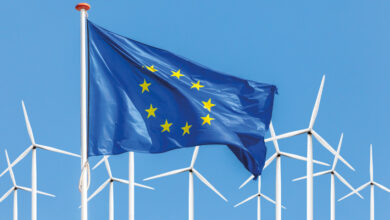TTIP’s future in doubt

The future of the Transatlantic Trade and Investment Partnership (TTIP) has been thrown into doubt after leaked details highlight major divisions in the agreement’s most central provisions.
 TTIP is a bi-lateral trade agreement between the EU and the US designed to reduce the regulatory barriers to trade for big business and impacts on food safety law, environmental legislation, banking regulations and the sovereign power of individual nations. The 13th TTIP negotiating round took place at the end of April and the European Commission says it hopes to achieve a deal later this year.
TTIP is a bi-lateral trade agreement between the EU and the US designed to reduce the regulatory barriers to trade for big business and impacts on food safety law, environmental legislation, banking regulations and the sovereign power of individual nations. The 13th TTIP negotiating round took place at the end of April and the European Commission says it hopes to achieve a deal later this year.
Talks over the agreement have been held almost entirely in secret, with the majority of information known to the public about the deal coming in the form of unofficial leaks. The latest batch of leaks come from Greenpeace Netherlands. The environmental group obtained 248 pages of classified documents from the TTIP trade talks, aimed at clinching a far-reaching EU-US free trade deal.
These leaks show that the US is looking to change EU regulation, lessening the protections on the environment and consumer rights. The leaks highlight the desire of the United States’ negotiators to change the EU’s ‘precautionary principle’ that governs how potentially harmful products are sold. The US has much weaker regulation that aims to minimise rather than avoid risks and it is this less strict regime that US companies want to see the European Union adopt.
The document also states that if the EU want to make further changes to similar regulations it would have to inform the US and corporations based there, effectively giving American companies the same input into EU regulations as European companies have. Across all 248 leaked pages there is no reference to the global effort to cut CO2 that was agreed in Paris last year, despite a commitment from the European Commission that it would make environmental issues central to deal.
There is also concern in the EU about the role of commercial arbitration courts, independent of national courts, where firms can sue governments. There are fears that big US corporations could put excessive legal pressure on some EU states. The threat of being sued could have a ‘chilling’ effect on legislators, forcing them to water down welfare protections.
However, following these leaks EU Trade Commissioner Cecilia Malmström was quick to downplay them as little more than negotiating positions and stated that in some aspects the EU and the US are not in agreement.
“No EU trade agreement will ever lower our level of protection of consumers, or food safety, or of the environment,” reads Malmström’s blog post. “I am not in the business of lowering standards. I have a clear negotiating mandate for the negotiations given to the commission by 28 EU governments that clearly spells out what a successful agreement has to look like.”
The final agreement will require approval by all 28 EU governments and the European Parliament. Meanwhile the EU’s chief negotiator Ignacio Garcia Bercero has stated there is still a lot of work to be done with major differences on both sides’ stance on public procurement. The EU wants US authorities to give European companies much more market access to compete for public contracts.
Other issues in need of negotiation include the beef market, the services sector and the EU’s protected geographical labels, such as Champagne and Gorgonzola.





